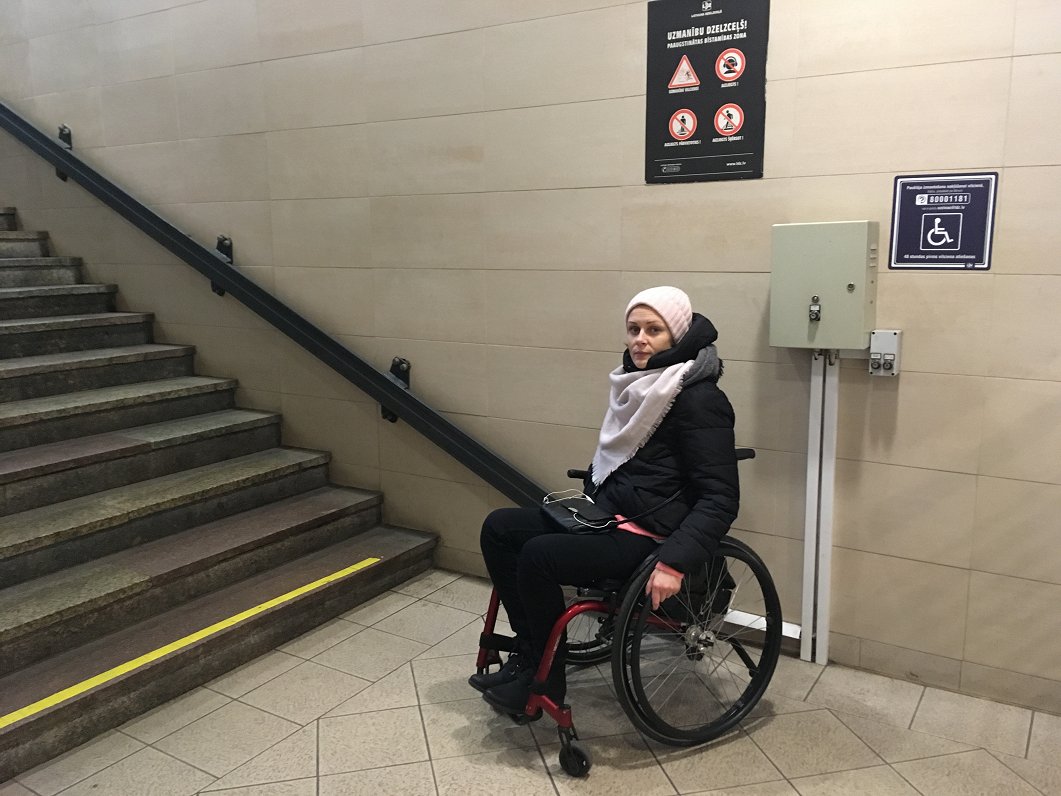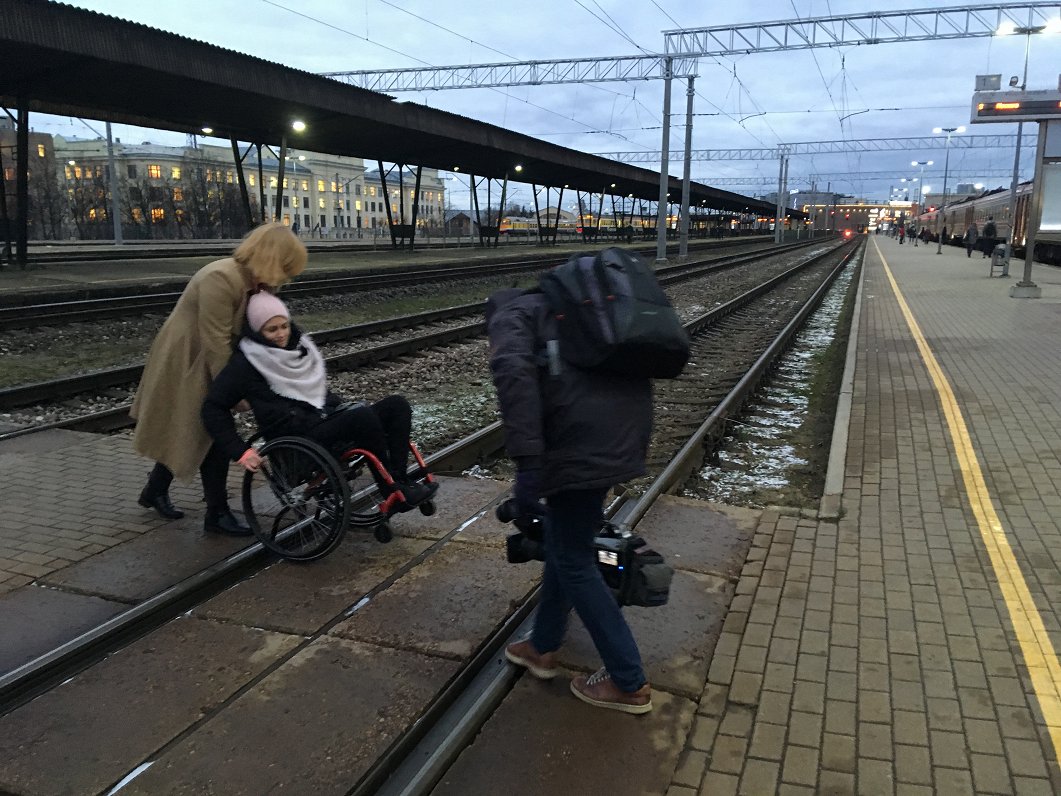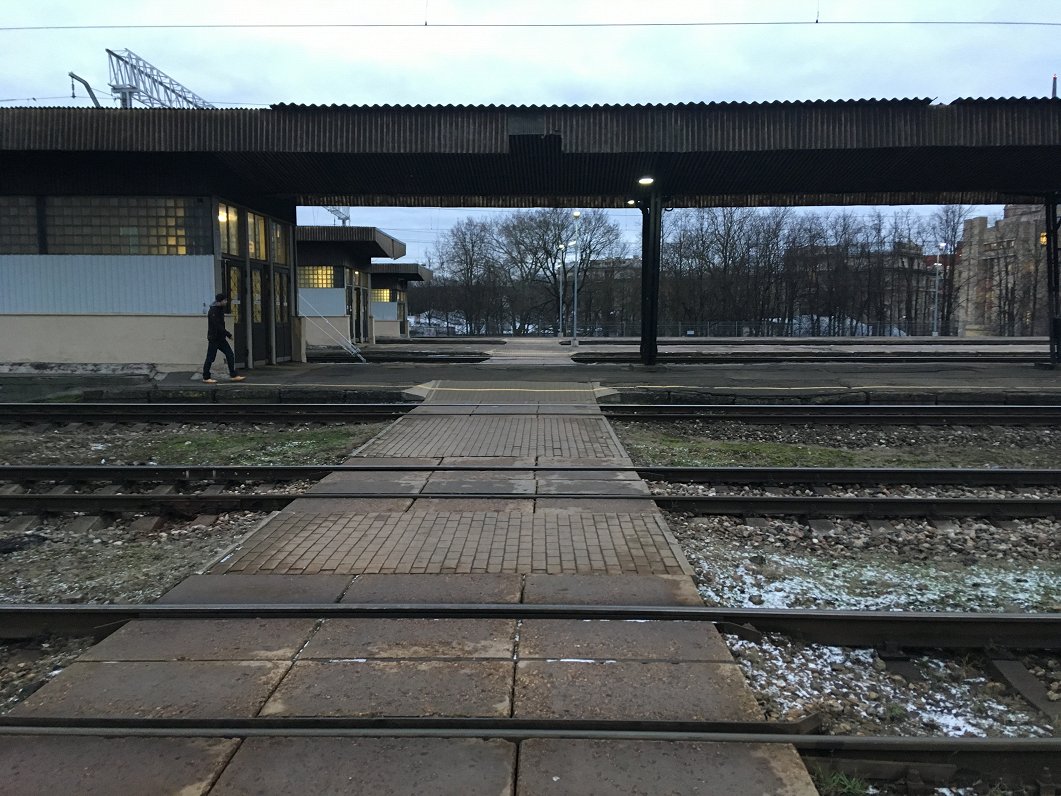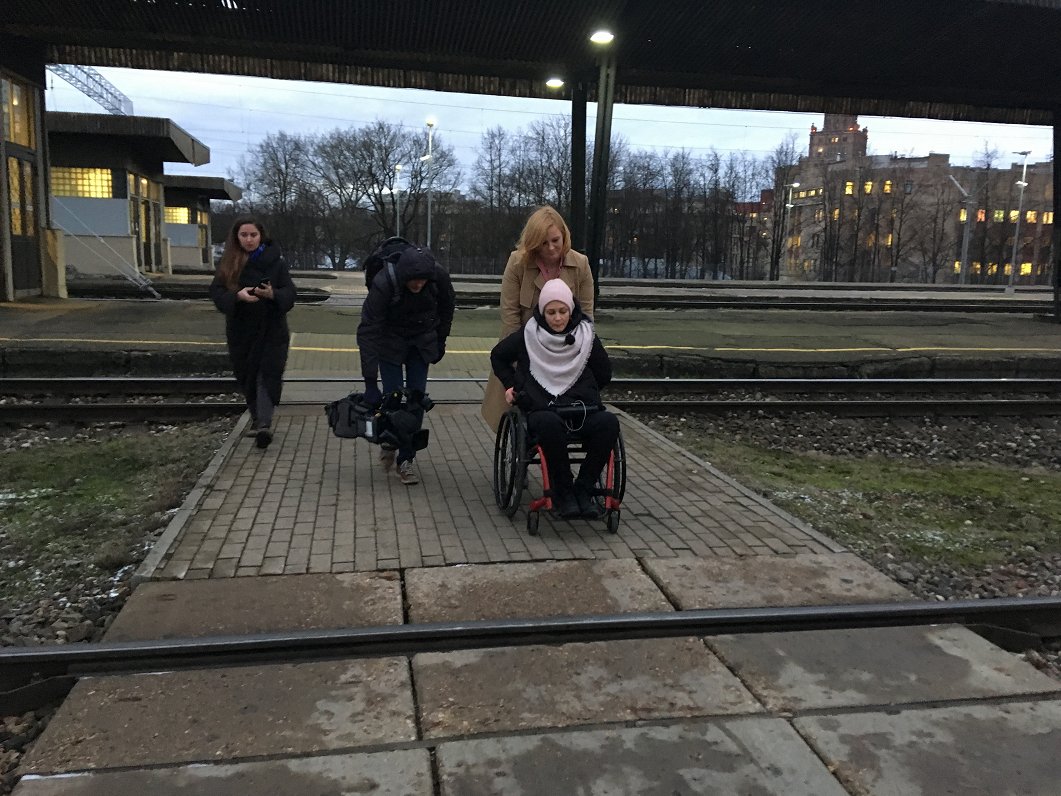Her experience of an out-of-service wheelchair lift and drunk employees as she travels on the Rīga – Jelgava route each week sheds light on what many already knew: in Latvia, EU requirements over disabled access to trains are, at best, met to the bare minimum.
Karina suffered in a crash and has been using a wheelchair for the past 14 years. She works as a cook at a vegan restaurant in Rīga and makes professional food photos.
"I am not a lazy do-nothing using up social benefits and complaining thereafter. I really try to do everything that, being a wheelchair user, I am able to. But the state does not help me be independent...I like being active and paying taxes and seeing a beautiful city. I would gladly contribute to it all, but I want to see the result!" she said.
On work-days, she has an assistant to help her, but on Friday evenings she has to get to Jelgava to her parents on her own. Theoretically, the Rīga Central Station, which was built in the 1960s, is fit for wheelchair access, but in practice it's an uphill battle each time.
"The lift for the platform 7 has been out of service throughout the entire year. It means that I have to take a lift to platform 1 and then have special assistants take me across the tracks, seven platforms in all," she said.
Aided by her assistant, she showed the process to Latvian Radio: first, they have to turn some several hundred meters to the level crossing. There, the wheelchair routinely gets stuck on the rails. This damages the wheelchair and her traumatized back. Karina is unable to make it to the other side alone, but helpers provided by Latvian Railways are at times extremely unreliable.
"There have been cases when they simply don't show and don't call. When I call them, they're all drunk. They say, yes, yes, we'll come. But they don't. For example, two weeks ago I was waiting down here, and a couple of security guards came and asked me what has happened.
"I was crying, because I was very tired. I was alone in Rīga. It was very late and it was raining, and I did not know what to do...
"I told them that my train is leaving within five minutes, but I can't make it on my own. The security helped me up the stairs to the 7th platform, and the employees [who should have helped] were up there smoking and asked me, well, why didn't you come here on your own?"
But getting to the required platform is only half the battle. The trains have very steep stairs and you can get inside only using a mobile lift, which you have to order two days ahead:
"The problem is that they sometimes forget that you need this service and forget to charge the lift. One time they lifted me inside with their hands, but it was very dangerous as the stairs are very steep. If I had fallen, I would have broken my neck. The second time, I refused, and then they simply stopped the train. All of the passengers had to wait for half an hour until they charged the battery and the lift started working. The passengers were all very angry, as they had to wait in a very late hour, just so that a single disabled person could get on the train!"
She has contacted Latvian Railways about these problems for several times. Her friends have written them letters. After she posted her story on Facebook and it was shared by a couple thousand people, she received a call from the company.
"They told me they'll fix everything and told me they're sorry about this and asked to please tell them everything. And they gave me a direct number of sorts, which I should call should anything happen and to tell them if I was put on the train by hand or if an employee was drunk. But what about all the other disabled people who don't have a VIP phone number? Does it mean that in Latvia you should be a VIP to be heard and receive help?" Karina said.
Karina has seen the world and describes her experience here as singularly bad.
"I have visited some 15 countries, and sadly, only in my homeland, which I love dearly, have I faced such problems," she said.
Latvia will start receiving the first new trains in about two years' time. While work on rebuilding the Central Station for the Rail Baltica link will start in a couple of years.
Until then, Karina and other passengers in wheelchairs will have to hope that the lift they'd ordered two days ago will be there and will hold a charge.
Accessibility expert Ivars Balodis of the NGO Apeirons stressed that assistants absolutely must not be intoxicated when they help disabled people.
"Secondly, if an accessibility solution goes out of service, and that can happen, there should be a notice as to what the person should do...We hope as more low-floor trains are introduced people will have access to many more stations and will be able to use this service to a greater extent.
"But until the new trains arrive and the station is not reconstructed, temporary measures should be working and these should be checked from time to time," he said.
Ieva Kustova, the spokeswoman for Latvian Railways, told Latvian Radio that one of the lifts is indeed broken and a tender should be started for purchasing a new one. Meanwhile the requirement to ask for assistance two days in advance is, she said, in line with EU regulations.
As to the possibly intoxicated employee, Kustova said that as no formal complaint has been received it is difficult to find out who could have been that person.
































